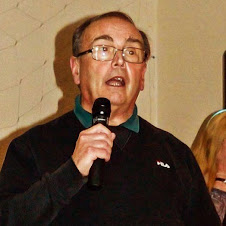Miscarriages of justice occur regularly in our justice system. The list of victims is lengthy:
Timothy Evans, The
Birmingham Six, The
Bridgewater Four and
Stefan Kiszko are just a few that come to mind. Lately, the name of Andrew Malkinson has been added to the list.
The facts of Mr Malkinson's case are well enough known by now. He was jailed in 2003 for the brutal rape of a woman, then aged 33, in Salford. The victim had been walking home when she was dragged down a motorway embankment and attacked in the early hours of July 19, 2003.She had been walking home from her boyfriend's residence when her attacker, wrongly identified as Malkinson, started following her. The woman was strangled until she was unconscious. Upon waking, she ran to the nearest road to get help.
Even at the time, the evidence against Malkinson was questionable. The Bolton News, reporting during the trial, noted:
"Forensic scientists tested 29 samples, including swabs from various parts of the victim's body, her clothes, and grass from the scene, but no DNA evidence was found".There were other discrepancies in the case against Malkinson. As
The Guardian said in May:
The prosecution’s case relied on unreliable eyewitness testimony and the victim choosing Malkinson in a video lineup - despite several key details not matching the victim's description of her attacker. Incredible though it seems now, the lack of DNA evidence was explained by saying that Malkinson was “forensically aware” and had purposely left no trace.
Greater Manchester Police have apologised for their "mistakes" over Mr Malkinson. With commendable restraint, Mr Malkinson told the BBC's Newsnight programme: "The Greater Manchester Police apology... it's meaningless to me, absolutely meaningless. An apology without accountability, what is that? It's nothing, it's nothing, it means nothing."
Besides having suffered a monstrous injustice, Malkinson might be charged for his incarceration.
The Mirror says here:
"Mr Malkinson has now revealed that he may have to pay for the cost of food and accommodation while he was behind bars from whatever compensation he receives. It is understood that is has been standard practice in miscarriage of justice cases since the Criminal Appeal Act 1995 came into force".
Surprisingly to me, even a senior Tory has spoken out against this. As LBC says:
"Sir Bob Neill, the senior Tory MP who is chairman of the House of Commons Justice Committee, said: "I think any fair minded person thinks this is just wrong...:To say it's adding insult to injury is probably to put it more mildly than it deserves".
That is well said, and let's hope that a man who has suffered enough already will be spared from paying for his unjust imprisonment.
But there is one aspect of this case that has wider implications. It is something that I knew nothing of, and find it disturbing. It began with Malkinson's refusal to confess to a crime that he did not commit. The Mirror again:
"Although he could have been let out after serving seven years if he had admitted the offence, he went on to serve a further 10 years because he insisted on his innocence".
To me, that was mind-numbing, though admirable. To languish in prison on grounds of principle is very brave. But the idea that an innocent man should be punished with more than twice the sentence length of a guilty man is beyond appalling. It has led me to an awareness of what is called the
Innocent prisoner's dilemma. The innocent prisoner's dilemma is a consequence of a legal system in which confession of guilt can result in reduced sentences or early release on licence. When an innocent person is wrongly convicted, legal systems which need the individual to admit guilt punish an innocent person for their honesty, and reward unrepentant criminals. Wikipedia comments here:
"There have been cases where innocent prisoners were given the choice between freedom, in exchange for claiming guilt, and remaining imprisoned and telling the truth. Individuals have died in prison rather than admit to crimes that they did not commit". it seems to me that a radical rethink of the system is needed. It is intolerable to think that innocent people are in prison for crimes they did not commit - and, to his credit, Andrew Malkinson says that there are more like him. I don't pretend to have the answer. I am not a lawyer , but the Malkinson case has exposed a gross injustice that must be remedied.
To conclude, I wish Andrew every happiness and good luck with further struggles against the system. Good luck, also, to other wrongly convicted people in jail who are fighting to prove their innocence.











